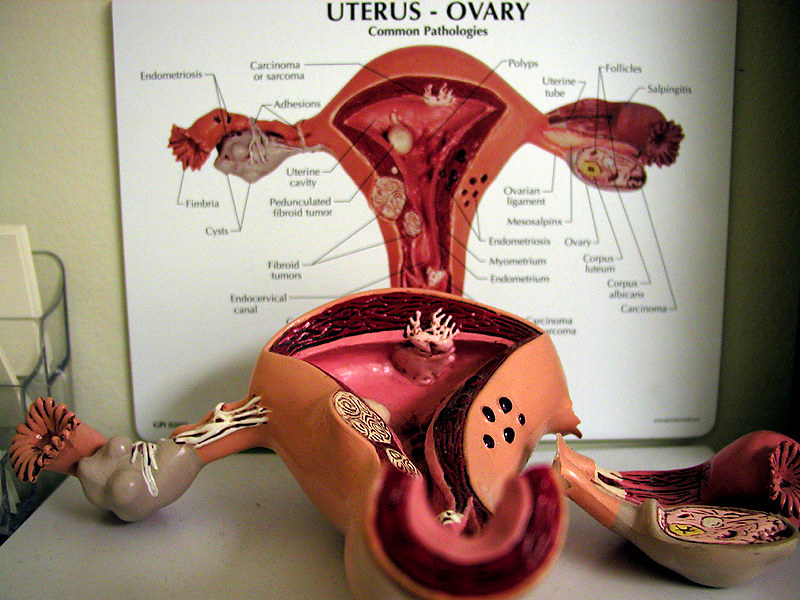A fibroid is a very common condition that affects up to 80% of women above the age of 30 and below 50. Because of this, we would be answering some questions about fibroid, with guides to help you know if you have a fibroid, how to go about getting help and what to expect from your health care provider.
What is Fibroid?
A fibroid is an abnormal, non-cancerous growth that develops in the uterus, it grows very large in some cases with painful and serious symptoms while in other cases could be small with no noticeable symptoms. Fibroid could either be single or multiple, multiple fibroids present more painful and noticeable symptoms than when it is single.
Common symptoms of fibroids
If you notice any of these symptoms, it could be that you have fibroid growing in you.
- Abnormal bleeding during or between periods
- Menstrual Cramps.
- Enlargement of the lower abdomen.
- Pain during sex.
- Pelvic pain.
- Frequent urination.
- Constipation.
- Trouble conceiving: common with submucosal fibroids.
Some of these symptoms could be an indication of some other ailment as such you must check with a professional health care provider to get proper diagnosis and treatment. You can speak with our professionals here.
Types of fibroid
Fibroids are classified based on their location in your body. There are 4 classifications of fibroid:
- Subserosal Fibroids: This grows outside the uterus on the serosa.
- Submucosal Fibroids: Develop in the middle muscle area of the uterus and sometimes can cause infertility. Although this type of fibroids is less common.
- Intramural Fibroids: This type of fibroid grows within the muscular wall of the uterus and can grow large, stretching the womb to a great extent.
- Pedunculated Fibroids: When subserosal fibroids grow a stem that connects them to the uterus, these stems are called Pedunculated Fibroid
Causes of fibroids
The cause of fibroid remains unknown but the following factors have been identified as stimulants that support its growth.
- Estrogen and Progesterone: These hormones are produced at puberty and all through the productive age of a woman. But they also stimulate the growth of fibroids.
Because of this fibroids do shrink after menopause when the production of these hormones reduces in your body.
- Pregnancy: When you are pregnant, your body increases its production of Estrogen and Progesterone. This could lead to the increased growth of the fibroid.
- Family History of fibroid among your sisters, mother, grandmother, aunt etc could indicate that fibroid could be hereditary in your family.
Who is at risk of fibroid?
- Women of childbearing age are at risk of fibroid.
- People with a family history of fibroid.
- Women who are obese or overweight.
- Pregnant women: Pregnancy increases your chances of fibroid.
- Statistically, the fibroid is common among women of the black racial group.
Diagnosis of fibroid
- Ultrasound of the Uterus can be done or a Transvaginal ultrasound can be carried out to see images of the fibroid.
- MRI: a pelvic MRI is carried out to give an in-depth image of the uterus. This would show if a fibroid is growing in your uterus.
Treatment of fibroid
An effective treatment plan would be developed for you by your healthcare provider depending on the peculiarity of your case and your age. If you suspect you have a fibroid, you can speak with our gynaecologist here and get a treatment plan that is suited for you.
Depending on the severity certain home remedies can help treat fibroid. They include:
- Acupuncture
- Yoga
- Green tea
Medication for treating Fibroid
Your doctor could prescribe certain medications to help regulate your hormonal level;
- Leuprolide(Lupron): This help drop your Estrogen and Progesterone levels making the fibroids shrink and die off.
- Ganirelix Acetate injection: Stops your body from producing follicles Stimulating Hormones, hence shrinking the fibroid. Cetrotide (Cetrorelix).
Surgery
In cases where the fibroid has grown large or multiple growths and could lead to other complications, your doctor may conduct surgery to remove the fibroid from your body. Although in some cases the fibroid would still grow back after it is removed.
Prevention of fibroid
Since the cause of fibroid can not be determined, there are no known ways to prevent it. But certain healthy lifestyle choices can help reduce your chances of getting fibroid.
- Eating a healthy diet mainly of fruits and vegetables.
- Maintaining a healthy body weight.

